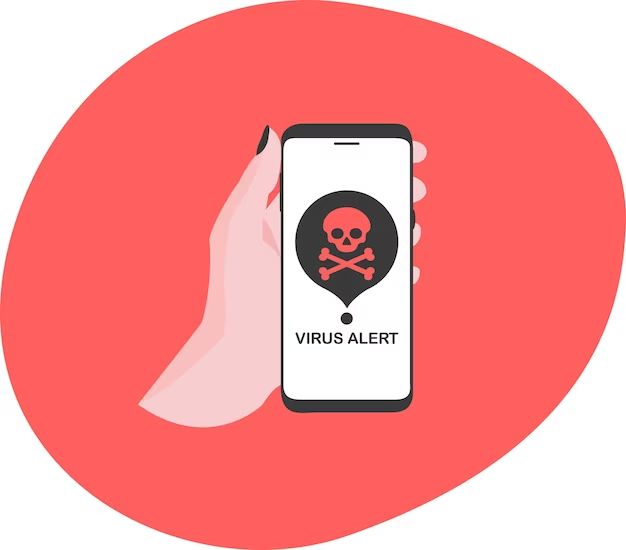Getting a message that your iPhone has a virus can be alarming. However, these messages are almost always fake and are an attempt to scam you. Here are some quick answers about iPhone virus messages:
What does the virus message on an iPhone look like?
The fake iPhone virus messages often look very realistic. They may:
- Pop up on your screen while using your iPhone
- Appear to be from Apple or your phone carrier
- Say your iPhone is infected, locked, or compromised
- Ask you to call a support number to remove the virus
Are the messages real? Does my iPhone really have a virus?
No, your iPhone does not really have a virus. These messages are fake and are not from Apple or your carrier. They are sent by scammers trying to get your money or information.
How do the fake virus messages end up on iPhones?
There are a few ways scammers send the fake virus alerts:
- Via phishing websites – If you visit certain malicious sites, a pop-up may appear
- Through ads – Clicking a corrupted ad can trigger the pop-up
- By texts/calls – Scammers may text or call with virus claims and instructions
What should I do if I get an iPhone virus message?
If you receive a message that your iPhone has a virus, do not call the number listed or follow any instructions. Simply dismiss the message and delete it if possible. Run an antivirus app to double check, but your iPhone should be fine.
How can I prevent fake iPhone virus alerts?
Here are some tips to avoid these scam messages:
- Be wary of websites and links – Only visit reputable sites to avoid phishing scams
- Don’t click ads – Scam ads can sometimes trigger virus messages
- Install antivirus software – This can detect and block malicious sites and files
- Keep your iPhone software updated – Updates patch vulnerabilities and improve security
- Avoid jailbreaking – Jailbreaking makes iPhones more vulnerable to malware
Should I factory reset my iPhone after getting a virus message?
No, do not factory reset your iPhone. The virus alerts are not real, so there is no need to reset your device. A reset will simply erase your data for no reason.
Can iPhones get real viruses?
While rare, it is possible for an iPhone to become infected with real malware. This usually requires:
- Jailbreaking the device – This disables security measures
- Downloading from untrusted sources – Such as pirated or cracked apps
- Visiting compromised websites – That exploit iOS vulnerabilities
However, Apple’s tight control of the App Store and iOS software makes iPhone malware relatively uncommon. The fake virus alerts are much more prevalent.
Should I be concerned about iPhone spyware?
Spyware on iPhones is very rare, but remotely possible in some situations. You do not need to worry about it if:
- You have not jailbroken your device
- Only download apps from the official App Store
- Have not noticed strange or unauthorized activity on your device
Use trusted antivirus apps and keep your iPhone updated to help protect against the small risk of spyware.
Can someone remotely install malware on my iPhone?
It is extremely unlikely someone could remotely infect your iPhone with malware without your knowledge. This would require:
- You opening an infected file from an unknown source
- Unknown vulnerabilities being exploited in iOS
- Your iPhone being jailbroken
As long as you use your iPhone safely, keep software updated, and do not jailbreak, remote infection without consent is very hard to accomplish.
Conclusion
Fake virus and malware alerts on iPhones are largely scams trying to profit off of users’ concerns. As long as you keep your device updated, only install trusted apps, and avoid suspicious links, your iPhone should remain secure. If a virus notification does appear, dismiss it and run a trustworthy antivirus app to verify your iPhone’s safety.
| Scenario | Risk Level |
|---|---|
| Visiting reputable websites | Very Low |
| Clicking scam ads or links | Moderate |
| Downloading well-reviewed apps | Very Low |
| Jailbreaking device | High |
| Enabling unknown sources | Moderate |
| Keeping software updated | Very Low |
This table summarizes the general risk levels of various user actions that may impact the chance of getting infected malware on an iPhone. As shown, common sense precautions like avoiding suspicious links and keeping device software up-to-date greatly reduce the security risks.
Risk Level Key
Very Low – Extremely unlikely to result in malware infection
Low – Unlikely to expose phone to serious malware threats
Moderate – Some increased risk of potential malware issues
High – Much greater chance of malware infection
Stay vigilant, but you can feel reassured that fake virus alerts are much more common than real malware attacks on properly secured iPhones. With some simple precautions, you can largely avoid any genuine iPhone virus concerns.

